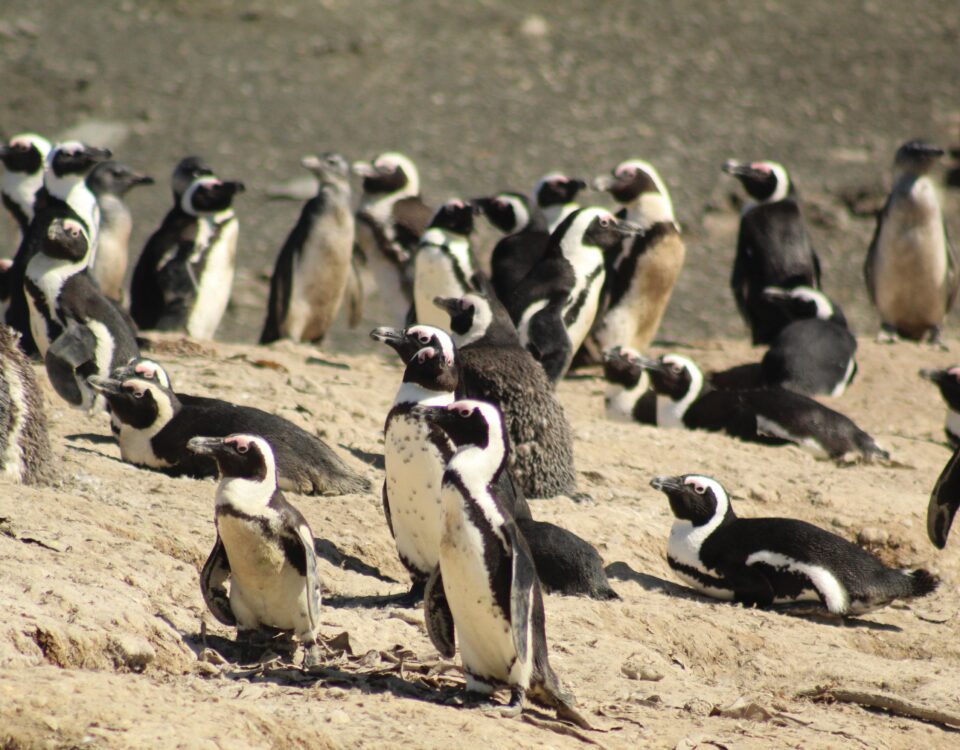Going green: Sustainability – the last frontier
July 12, 2012Namibia’s ‘dry’ rivers attract international attention on water management
July 12, 2012Growing demands on staff and resources and expansion of its focus beyond wildlife led the Integrated Rural Development and Nature Conservation (IRDNC) to acquire two more bases in the past year, one just outside Opuwo in the Kunene Region and the other on the Kwando River in the Mayuni Conservancy in East Caprivi. Both will serve as training and meeting centres, as does the IRDNC’s existing Wêreldsend base in the Kunene Region.
Apart from conservancy training, the Opuwo centre will serve the growing needs of the ‘grass project’ being conducted in partnership with the Ministry of Agriculture. This pilot Holistic Resource Management project aimed at regenerating perennial grasses and stopping further topsoil losses in degraded rangelands in three conservancies has shown sufficient success for development of plans to expand into further Kunene conservancies. A similar project, coupled with the IRDNC’s existing fire management project, will also be initiated in Caprivi.
The IRDNC sees the rangelands and fire projects as logical next steps in the conservancy programme with its improved livelihoods focus, as both address reduced ecosystem production in the two regions due to over-grazing, degraded range and bush encroachment. Wildlife and domestic stock are beneficiaries.
The camp, formerly known as the Kunene Village Campsite, has already become established as an IRDNC training facility in Opuwo and is also providing accommodation for staff when in town. Funding has been obtained from the French Embassy and Evangelischer Entwicklungsdienst for phase one of an upgrading plan for the camp to become a training venue while continuing to operate as a non-commercial campsite that can provide on-the-job tourism training.
This camp will also serve the young and emerging conservancies in the north-eastern Kunene Region into which elephant populations are expanding and where exciting new elephant corridors to the Kunene River are being investigated.
Training on the Kwando
In Caprivi the IRDNC has secured a training and residential base at Sijwa on the Kwando River, formerly a small mission station. Funding is being sought to upgrade the basic facilities, including a meeting and workshop venue, plus additional accommodation and camping amenities. Apart from strengthening our conservancy training capacity, the site is strategically located to serve as a springboard for the IRDNC’s trans-boundary work with communities in Angola and Zambia, as part of the Kavango-Zambezi Transfrontier Conservation Area (KaZa) initiative.
Wêreldsend
The two new centres, when upgraded, will be available to partners for meeting and training events, as is already done at the IRDNC’s Wêreldsend base, 30 kilometres from the Springbokwasser gate on the eastern border of the Skeleton Coast Park.
The historic meeting hall of the IRDNC’s Wêreldsend base – Namibia’s first environmental centre – is being rebuilt, also with French funding. The centre, which seated up to 100 people, was destroyed by fire in September, accidentally started during work on the Save the Rhino Trust (SRT) housing. Although most activities have continued under makeshift conditions, it is hoped that the centre will be formally re-opened towards the middle of the year.
Community-based natural resource management – which evolved into the popular communal area conservancy movement of the Ministry of Environment and Tourism, with more than 55 conservancies now registered and one in five rural Namibians a member of a conservancy – started at the Wêreldsend meeting venue. The Namibia Community Based Tourism Association (NACOBTA) was born at a meeting at Wêreldsend and the first joint venture between a conservancy and private-enterprise tourism was negotiated here.
The Wêreldsend Environmental Centre was renovated at independence and officially opened by Namibia’s first Minister of Environment and Tourism, the late Mr Niko Bessinger. Since then, it has hosted hundreds of community meetings, workshops, conservancy planning and training events. The IRDNC hopes that the two new training and residential bases will serve as similarly useful conservation and development venues.
This article appeared in the 2008/9 edition of Conservation and the Environment in Namibia.



1 Comment
This is really touching article..I would like to be part of it.